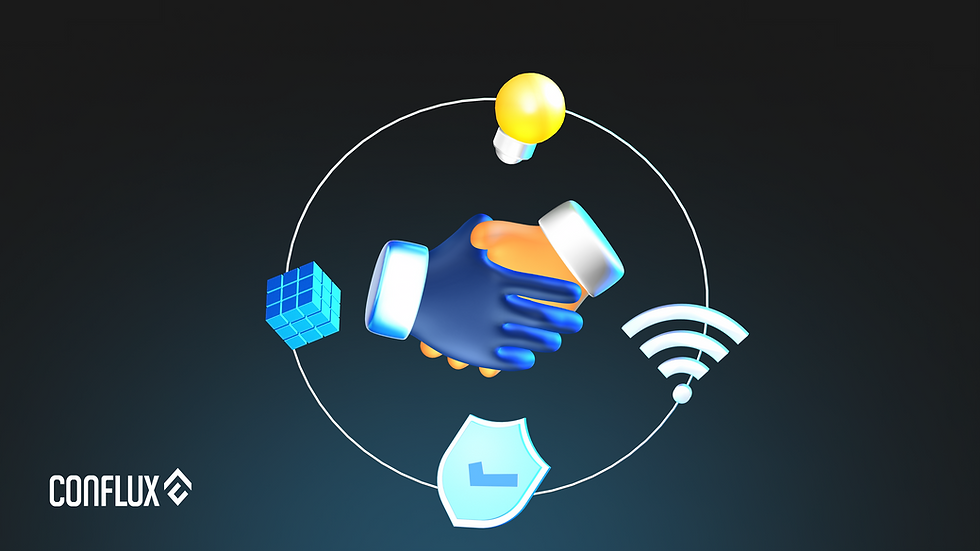What is P2P Trading?
- Conflux Network
- Aug 23, 2022
- 2 min read

On crypto exchanges, peer-to-peer (P2P) trading occurs when users buy and sell
cryptocurrencies directly with one another. Sometimes, an exchange might charge a small percentage as network fees for the transaction while others might not.
P2P trading enables buyers and sellers to make transactions without any third-party involvement and also with their local currency and preferred payment methods. The elimination of third-party occurs because the crypto platform relies more on algorithms to verify transactions. In addition, exchanges sometimes offer rating/badge systems to build trust between participants in the transaction. A buyer or seller will be often advised/prompted to view the ratings or badges before making a sale or purchase.
PROs of P2P Trading
Payment Methods: On a P2P trading network, traders have a variety of payment methods to select from and only have to choose their most convenient method to receive or accept payments.
Global marketplace: P2P network offers a global marketplace where participants can trade with anyone across the world regardless of their location. Buyers and sellers can trade whichever coin in whichever currency they prefer. This is a great option for traders who reside in countries where crypto is either unaccepted or unrecognized.
Low Transaction Fees: P2P trading often requires little to no transaction fees dependent on the exchange. Hence traders can make transactions easily without worrying about additional charges.
Fast Transaction Speed: Typically, P2P traders often experience a faster transaction speed since they have full control of the payment methods.
Secure Transactions: P2P Trading platforms usually offer security options such as encryption and two-factor authentication to initiate secure transactions.
Cons of P2P Trading:
Risk of Fraud: In as much as P2P trading platforms are secure, the transactions are also prone to fraud. There is a high risk that traders can lose money with scammers. To prevent a scam, a participant has to confirm that another participant has met all the requirements before
commencing trade.
Low Liquidity: Unpopular P2P trading platforms sometimes experience low liquidity. This means there may not always be someone available to match a trade order and this results in a longer waiting time to make a sale or purchase which affects the trading price. In this regard, it’s always better to trade on popular exchanges.
Slow Transaction Speed: Transactions can also be slow on P2P trading platforms. If a participant fails to confirm a transaction quickly, it will affect the speed of the transaction.
Unreliable Third-Party Networks: Relying on third-party networks can be a huge disadvantage with a P2P transaction. Sometimes, downtime occurs during the interbank transaction that causes heavy delays and both buyers and sellers tend to assume that fraud is lingering. `Also, issues within third-party transactions might take a long time to resolve.



Comments